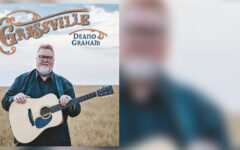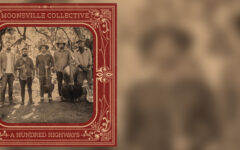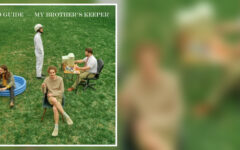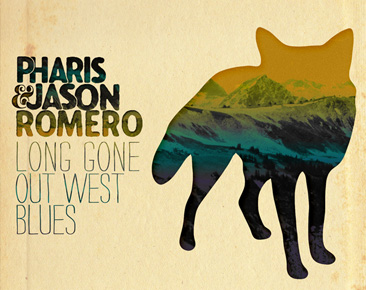
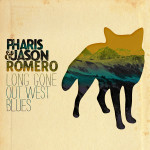 Some of today’s most enjoyable folk music comes from British Columbia husband-and-wife duo Pharis and Jason Romero. Their 2011 debut, A Passing Glimpse, was a beautifully understated album of old-time tunes, and their new release, Long Gone Out West Blues, is just as good. The couple has created their own style of melodic, gentle roots music, and to put it simply – it works.
Some of today’s most enjoyable folk music comes from British Columbia husband-and-wife duo Pharis and Jason Romero. Their 2011 debut, A Passing Glimpse, was a beautifully understated album of old-time tunes, and their new release, Long Gone Out West Blues, is just as good. The couple has created their own style of melodic, gentle roots music, and to put it simply – it works.
Pharis has penned seven of the album’s thirteen songs, including one co-write with her husband and one rewrite of an older tune. I Want to Be Lucky, which shares thoughts from a man who just can’t win, is one of the more radio-friendly tracks on the album. It’s a little bit bluesy, a little bit folky, with pensive instrumentation that matches the song’s mood perfectly. Come on Home is an old-timey, Gospel-tinged number that urges troubled listeners to “come forward with your worldly weight, come on home to no other’s place.” The blues mixes with an old West sound on Lonely Home Blues. Pharis seems to have fun with the vocals, taking on the role of a woman stuck at home, desperately waiting on her man to come back.
As this song shows, the Romeros seem to be a bit more influenced by the blues on this album than on their previous effort. In addition to Lonely Home Blues, they also cover the classic Truck Driver’s Blues (which is given a laidback treatment with great harmonies) and Waiting for the Evening Mail, modeled after a 1930 recording by Riley Puckett. The latter tune is a prototypical jail song, with simple phrases that convey the frustration of being locked up. It Just Suits Me, a traditional number the couple learned from an Alan Lomax recording, is an old spiritual with sass and more of a bluegrass sound than most of the album.
Even the most familiar tunes here have been given the couple’s special touch. Wild Bill Jones is one of the album’s best songs, somehow peaceful-sounding and urgent at the same time, with great banjo and lead vocals from Jason. Jason also offers two instrumentals: a lovely, slowed-down banjo version of Sally Goodin, and the haunting, sorrowful original Lost Lula.
The album is nicely balanced between the two artists, as Pharis and Jason share lead vocals and combine for nicely-matched harmonies throughout the project. Most would consider the instrumentation to be stripped down, as it is confined to Pharis’s guitar playing and Jason’s banjo, guitar, and resophonic guitar. However, they work together in the style of old-time brother duets, giving listeners a well-rounded and thoroughly pleasing listening experience.
More information about the couple’s music, as well as their banjo company (J. Romero Banjos), can be found at www.pharisandjason.com. Their new album can be purchased from several online music retailers.

